- Home
- Nora Roberts
The Art of Deception Page 6
The Art of Deception Read online
Page 6
Adam saw that she’d relaxed again, and concentrated on the shape of her eyes. Round? Not quite, he decided. They were nearly almond shaped, but again, not quite. Like Kirby, they were simply unique.
“Whatever my personal feelings, Stuart’s a knowledgeable dealer.” She gave a quick, short laugh. “Since she hired him, she’s had time to travel. Harriet’s just back from an African safari. When I phoned her the other day, she told me she’d brought back a necklace of crocodile teeth.”
To his credit, Adam closed his eyes only briefly. “Your families are close, then. I imagine your father’s done a lot of dealing through the Merrick Gallery.”
“Over the years. Papa had his first exhibition there, more than thirty years ago. It sort of lifted his and Harriet’s careers off at the same time.” Straightening in her chair, Kirby frowned across the table. “Let me see what you’ve done.”
“In a minute,” he muttered, ignoring her outstretched hand.
“Your manners sink to my level when it’s convenient, I see.” Kirby plopped back in her chair. When he didn’t comment, she screwed her face into unnatural lines.
“I wouldn’t do that for long,” Adam advised. “You’ll hurt yourself. When I start in oil, you’ll have to behave or I’ll beat you.”
Kirby relaxed her face because her jaw was stiffening. “Corkscrews, you wouldn’t beat me. You have the disadvantage of being a gentleman, inside and out.”
Lifting his head, he pinned her with a look. “Don’t bank on it.”
The look alone stopped whatever sassy rejoinder she might have made. It wasn’t the look of a gentleman, but of a man who made his own way however he chose. Before she could think of a proper response, the sound of shouting and wailing drifted up the tower steps and through the open door. Kirby made no move to spring up and investigate. She merely smiled.
“I’m going to ask two questions,” Adam decided. “First, what the hell is that?”
“Which that is that, Adam?” Her eyes were dove gray and guileless.
“The sound of mourning.”
“Oh, that.” Grinning, she reached over and snatched his sketch pad. “That’s Papa’s latest tantrum because his sculpture’s not going well—which of course it never will. Does my nose really tilt that way?” Experimentally she ran her finger down it. “Yes, I guess it does. What was your other question?”
“Why do you say ‘corkscrews’ or something equally ridiculous when a simple ‘hell’ or ‘damn’ would do?”
“It has to do with cigars. You really must show these sketches to Papa. He’ll want to see them.”
“Cigars.” Determined to have her full attention, Adam grabbed the pad away from her.
“Those big, nasty, fat ones. Papa used to smoke them by the carload. You needed a gas mask just to come in the door. I begged, threatened, even tried smoking them myself.” She swallowed on that unfortunate memory. “Then I came up with the solution. Papa is a sucker.”
“Is that so?”
“That is, he just can’t resist a bet, no matter what the odds.” She touched the wood again, knowing she’d have to come back to it later. “My language was, let’s say, colorful. I can swear eloquently in seven languages.”
“Quite an accomplishment.”
“It has its uses, believe me. I bet Papa ten thousand dollars that I could go longer without swearing than he could without smoking. Both my language and the ozone layer have been clean for three months.” Rising, Kirby circled the table. “I have the gratitude of the entire staff.” Abruptly she dropped in his lap. Letting her head fall back, she wound her arms around his neck. “Kiss me again, will you? I can’t resist.”
There can’t be another like her, Adam thought as he closed his mouth over hers. With a low sound of pleasure, Kirby melted against him, all soft demand.
Then neither of them thought, but felt only.
Desire was swift and sharp. It built and expanded so that they could wallow in it. She allowed herself the luxury, for such things were too often brief, too often hollow. She wanted the speed, the heat, the current. A risk, but life was nothing without them. A challenge, but each day brought its own. He made her feel soft, giddy, senseless. No one else had. If she could be swept away, why shouldn’t she be? It had never happened before.
She needed what she’d never realized she needed from a man before: strength, solidity.
Adam felt the initial stir turn to an ache—something deep and dull and constant. It wasn’t something he could resist, but something he found he needed. Desire had always been basic and simple and painless. Hadn’t he known she was a woman who would make a man suffer? Knowing it, shouldn’t he have been able to avoid it? But he hurt. Holding her soft and pliant in his arms, he hurt. From wanting more.
“Can’t you two wait until after lunch?” Fairchild demanded from the doorway.
With a quiet sigh, Kirby drew her lips from Adam’s. The taste lingered as she knew now it would. Like the wood behind her, it would be something that pulled her back again and again.
“We’re coming,” she murmured, then brushed Adam’s mouth again, as if in promise. She turned and rested her cheek against his in a gesture he found impossibly sweet. “Adam’s been sketching me,” she told her father.
“Yes, I can see that.” Fairchild gave a quick snort. “He can sketch you all he chooses after lunch. I’m hungry.”
CHAPTER 4
Food seemed to soothe Fairchild’s temperament. As he plowed his way through poached salmon, he went off on a long, technical diatribe on surrealism. It appeared breaking conventional thought to release the imagination had appealed to him to the extent that he’d given nearly a year of his time in study and application. With a good-humored shrug, he confessed that his attempts at surrealistic painting had been poor, and his plunge into abstraction little better.
“He’s banished those canvases to the attic,” Kirby told Adam as she poked at her salad. “There’s one in shades of blue and yellow, with clocks of all sizes and shapes sort of melting and drooping everywhere and two left shoes tucked in a corner. He called it Absence of Time.”
“Experimental,” Fairchild grumbled, eyeing Kirby’s uneaten portion of fish.
“He refused an obscene amount of money for it and locked it, like a mad relation, in the attic.” Smoothly she transferred her fish to her father’s plate. “He’ll be sending his sculpture to join it before long.”
Fairchild swallowed a bite of fish, then ground his teeth. “Heartless brat.” In the blink of an eye he changed from amiable cherub to gnome. “By this time next year, Philip Fairchild’s name will be synonymous with sculpture.”
“Horse dust,” Kirby concluded, and speared a cucumber. “That shade of pink becomes you, Papa.” Leaning over, she placed a loud kiss on his cheek. “It’s very close to fuchsia.”
“You’re not too old to forget my ability to bring out the same tone on your bottom.”
“Child abuser.” As Adam watched, she stood and wrapped her arms around Fairchild’s neck. In the matter of love for her father, the enigma of Kirby Fairchild was easily solvable. “I’m going out for a walk before I turn yellow and dry up. Will you come?”
“No, no, I’ve a little project to finish.” He patted her hand as she tensed. Adam saw something pass between them before Fairchild turned to him. “Take her for a walk and get on with your…sketching,” he said with a cackle. “Have you asked Kirby if you can paint her yet? They all do.” He stabbed at the salmon again. “She never lets them.”
Adam lifted his wine. “I told Kirby I was going to paint her.”
The new cackle was full of delight. Pale blue eyes lit with the pleasure of trouble brewing. “A firm hand, eh? She’s always needed one. Don’t know where she got such a miserable temper.” He smiled artlessly. “Must’ve come from her mother’s side.”
Adam glanced up at the serene, mild-eyed woman in the portrait. “Undoubtedly.”
“See that painting there?” Fairchild pointed to
the portrait of Kirby as a girl. “That’s the one and only time she modeled for me. I had to pay the brat scale.” He gave a huff and a puff before he attacked the fish again. “Twelve years old and already mercenary.”
“If you’re going to discuss me as if I weren’t here, I’ll go fetch my shoes.” Without a backward glance, Kirby glided from the room.
“Hasn’t changed much, has she?” Adam commented as he drained his wine.
“Not a damn bit,” Fairchild agreed proudly. “She’ll lead you a merry chase, Adam, my boy. I hope you’re in condition.”
“I ran track in college.”
Fairchild’s laugh was infectious. Damn it, Adam thought again, I like him. It complicated things. From the other room he heard Kirby in a heated discussion with Isabelle. He was beginning to realize complication was the lady’s middle name. What should’ve been a very simple job was developing layers he didn’t care for.
“Come on, Adam.” Kirby poked her head around the doorway. “I’ve told Isabelle she can come, but she and Montique have to keep a distance of five yards at all times. Papa—” she tossed her ponytail back “—I really think we ought to try raising the rent. She might look for an apartment in town.”
“We should never have agreed to a long-term lease,” Fairchild grumbled, then gave his full attention to Kirby’s salmon.
Deciding not to comment, Adam rose and went outside.
It was warm for September, and breezy. The grounds around the house were alive with fall. Beds of zinnias and mums spread out helter-skelter, flowing over their borders and adding a tang to the air. Near a flaming maple, Adam saw an old man in patched overalls. With a whimsical lack of dedication, he raked at the scattered leaves. As they neared him, he grinned toothlessly.
“You’ll never get them all, Jamie.”
He made a faint wheezing sound that must’ve been a laugh. “Sooner or later, missy. There be plenty of time.”
“I’ll help you tomorrow.”
“Ayah, and you’ll be piling them up and jumping in ’em like always.” He wheezed again and rubbed a frail hand over his chin. “Stick to your whittling and could be I’ll leave a pile for you.”
With her hands hooked in her back pockets, she scuffed at a leaf. “A nice big one?”
“Could be. If you’re a good girl.”
“There’s always a catch.” Grabbing Adam’s hand, she pulled him away.
“Is that little old man responsible for the grounds?” Three acres, he calculated. Three acres if it was a foot.
“Since he retired.”
“Retired?”
“Jamie retired when he was sixty-five. That was before I was born.” The breeze blew strands of hair into her face and she pushed at them. “He claims to be ninety-two, but of course he’s ninety-five and won’t admit it.” She shook her head. “Vanity.”
Kirby pulled him along until they stood at a dizzying height above the river. Far below, the ribbon of water seemed still. Small dots of houses were scattered along the view. There was a splash of hues rather than distinct tones, a melding of textures.
On the ridge where they stood there was only wind, river and sky. Kirby threw her head back. She looked primitive, wild, invincible. Turning, he looked at the house. It looked the same.
“Why do you stay here?” Blunt questions weren’t typical of him. Kirby had already changed that.
“I have my family, my home, my work.”
“And isolation.”
Her shoulders moved. Though her lashes were lowered, her eyes weren’t closed. “People come here. That’s not isolation.”
“Don’t you want to travel? To see Florence, Rome, Venice?”
From her stance on a rock, she was nearly eye level with him. When she turned to him, it was without her usual arrogance. “I’d been to Europe five times before I was twelve. I spent four years in Paris on my own when I was studying.”
She looked over his shoulder a moment, at nothing or at everything, he couldn’t be sure. “I slept with a Breton count in a chateau, skied in the Swiss Alps and hiked the moors in Cornwall. I’ve traveled, and I’ll travel again. But…” He knew she looked at the house now, because her lips curved. “I always come home.”
“What brings you back?”
“Papa.” She stopped and smiled fully. “Memories, familiarity. Insanity.”
“You love him very much.” She could make things impossibly complicated or perfectly simple. The job he’d come to do was becoming more and more of a burden.
“More than anything or anyone.” She spoke quietly, so that her voice seemed a part of the breeze. “He’s given me everything of importance: security, independence, loyalty, friendship, love—and the capability to give them back. I’d like to think someday I’ll find someone who wants that from me. My home would be with him then.”
How could he resist the sweetness, the simplicity, she could show so unexpectedly? It wasn’t in the script, he reminded himself, but reached a hand to her face, just to touch. When she brought her hand to his, something stirred in him that wasn’t desire, but was just as potent.
She felt the strength in him, and sensed a confusion that might have been equal to her own. Another time, she thought. Another time, it might have worked. But now, just now, there were too many other things. Deliberately she dropped her hand and turned back to the river. “I don’t know why I tell you these things,” she murmured. “It’s not in character. Do people usually let you in on their personal thoughts?”
“No. Or maybe I haven’t been listening.”
She smiled and, in one of her lightning changes of mood, leaped from the rock. “You’re not the type people would confide in.” Casually she linked her arm through his. “Though you seem to have strong, sturdy shoulders. You’re a little aloof,” she decided. “And just a tad pompous.”
“Pompous?” How could she allure him one instant and infuriate him the next? “What do you mean, pompous?”
Because he sounded dangerously like her father, she swallowed. “Just a tad,” she reminded him, nearly choking on a laugh. “Don’t be offended, Adam. Pomposity certainly has its place in the world.” When he continued to scowl down at her, she cleared her throat of another laugh. “I like the way your left brow lifts when you’re annoyed.”
“I’m not pompous.” He spoke very precisely and watched her lips tremble with fresh amusement.
“Perhaps that was a bad choice of words.”
“It was a completely incorrect choice.” Just barely, he caught himself before his brow lifted. Damn the woman, he thought, and swore he wouldn’t smile.
“Conventional.” Kirby patted his cheek. “I’m sure that’s what I meant.”
“I’m sure those two words mean the same thing to you. I won’t be categorized by either.”
Tilting her head, she studied him. “Maybe I’m wrong,” she said, to herself as much as him. “I’ve been wrong before. Give me a piggyback ride.”
“What?”
“A piggyback ride,” Kirby repeated.
“You’re crazy.” She might be sharp, she might be talented, he’d already conceded that, but part of her brain was permanently on holiday.
With a shrug, she started back toward the house. “I knew you wouldn’t. Pompous people never give or receive piggyback rides. It’s the law.”
“Damn.” She was doing it to him, and he was letting her. For a moment, he stuck his hands in his pockets and stood firm. Let her play her games with her father, Adam told himself. He wasn’t biting. With another oath, he caught up to her. “You’re an exasperating woman.”
“Why, thank you.”
They stared at each other, him in frustration, her in amusement, until he turned his back. “Get on.”
“If you insist.” Nimbly she jumped on his back, blew the hair out of her eyes and looked down. “Wombats, you’re tall.”
“You’re short,” he corrected, and hitched her to a more comfortable position.
“I’m going to be f
ive-seven in my next life.”
“You’d better add pounds as well as inches to your fantasy.” Her hands were light on his shoulders, her thighs firm around his waist. Ridiculous, he thought. Ridiculous to want her now, when she’s making a fool of both of you. “What do you weigh?”
“An even hundred.” She sent a careless wave to Jamie.
“And when you take the ball bearings out of your pocket?”
“Ninety-six, if you want to be technical.” With a laugh, she gave him a quick hug. Her laughter was warm and distracting at his

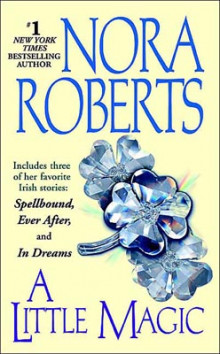 A Little Magic
A Little Magic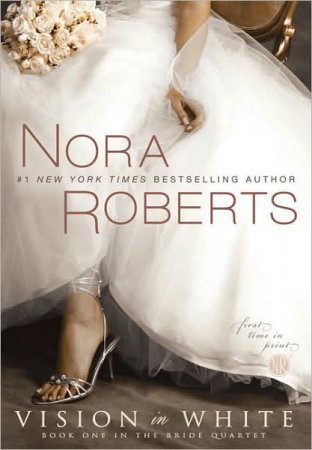 Vision in White
Vision in White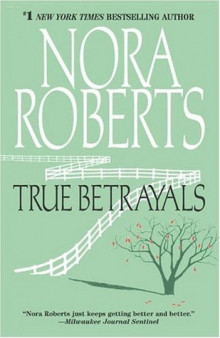 True Betrayals
True Betrayals The Next Always
The Next Always A Man for Amanda
A Man for Amanda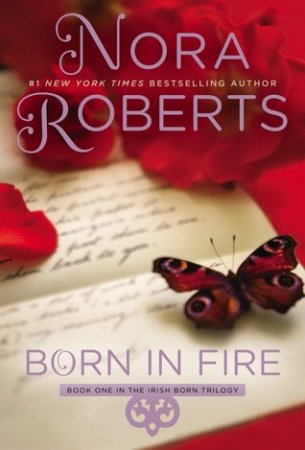 Born in Fire
Born in Fire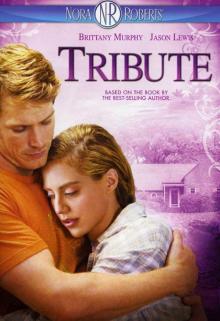 Tribute
Tribute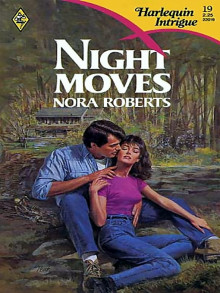 Night Moves
Night Moves Dance Upon the Air
Dance Upon the Air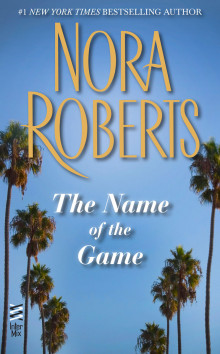 The Name of the Game
The Name of the Game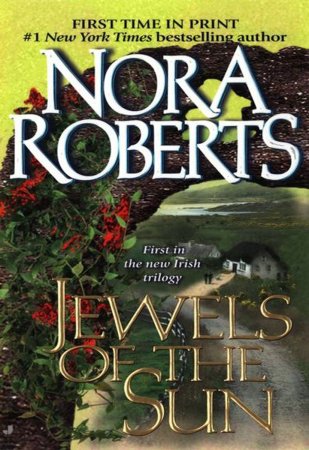 Jewels of the Sun
Jewels of the Sun River's End
River's End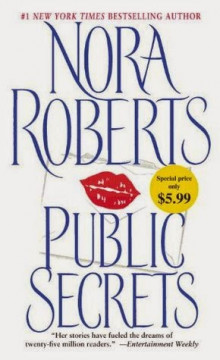 Public Secrets
Public Secrets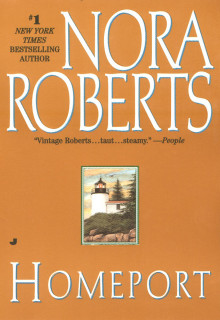 Homeport
Homeport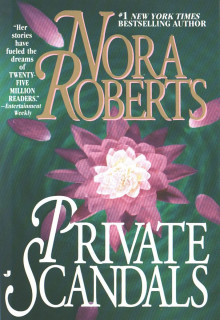 Private Scandals
Private Scandals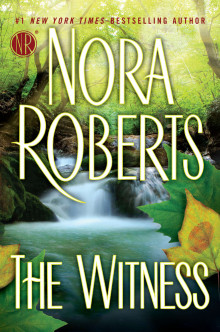 The Witness
The Witness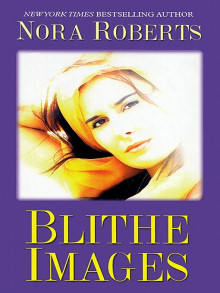 Blithe Images
Blithe Images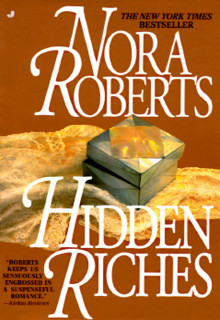 Hidden Riches
Hidden Riches Key of Light
Key of Light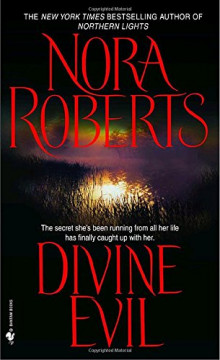 Divine Evil
Divine Evil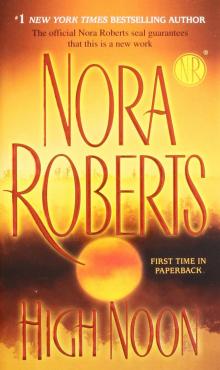 High Noon
High Noon Blue Dahlia
Blue Dahlia Sea Swept
Sea Swept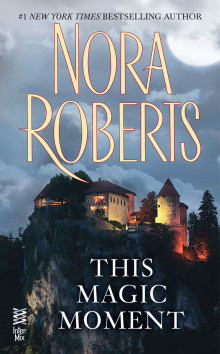 This Magic Moment
This Magic Moment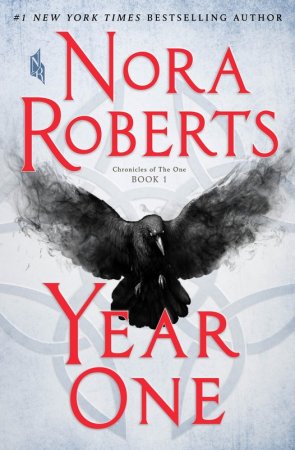 Year One
Year One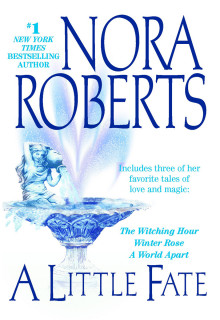 A Little Fate
A Little Fate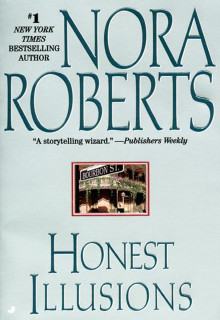 Honest Illusions
Honest Illusions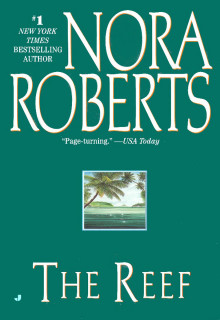 The Reef
The Reef Shelter in Place
Shelter in Place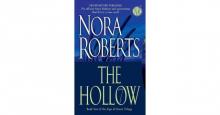 The Hollow
The Hollow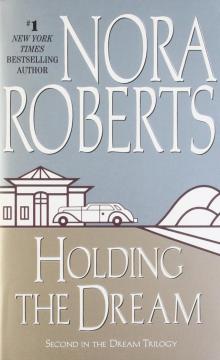 Holding the Dream
Holding the Dream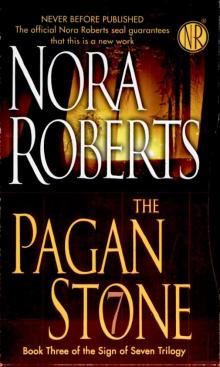 The Pagan Stone
The Pagan Stone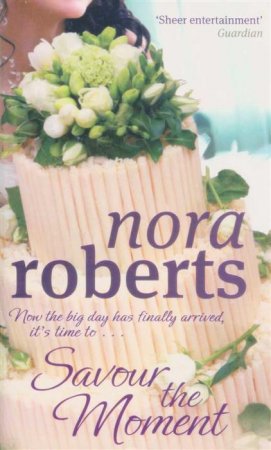 Savour the Moment
Savour the Moment The Perfect Hope
The Perfect Hope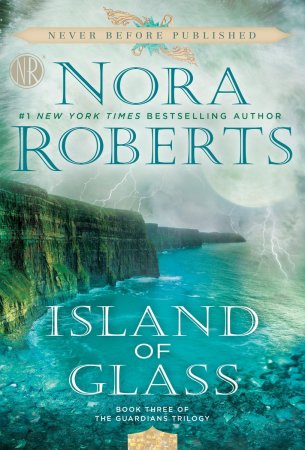 Island of Glass
Island of Glass Happy Ever After
Happy Ever After Bed of Roses
Bed of Roses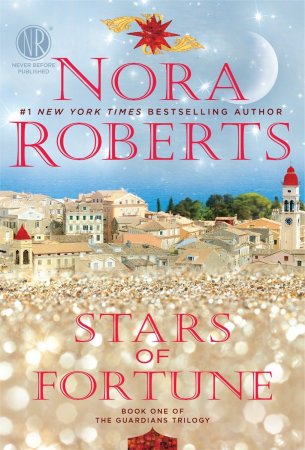 Stars of Fortune
Stars of Fortune Dark Witch
Dark Witch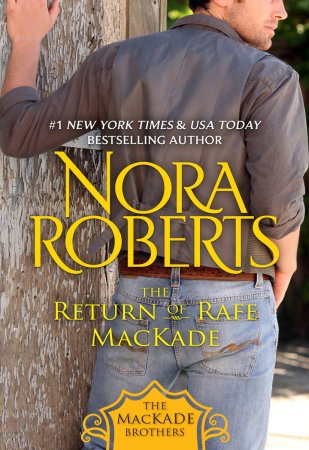 The Return of Rafe MacKade
The Return of Rafe MacKade Chesapeake Blue
Chesapeake Blue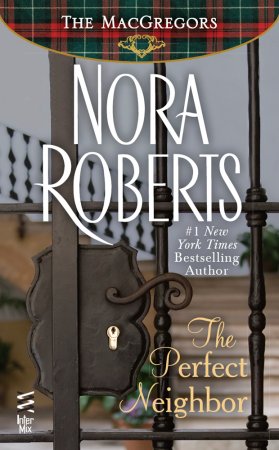 The Perfect Neighbor
The Perfect Neighbor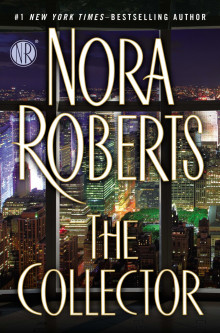 The Collector
The Collector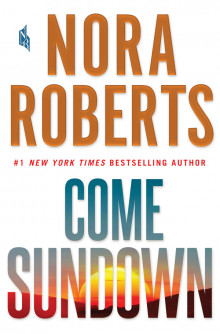 Come Sundown
Come Sundown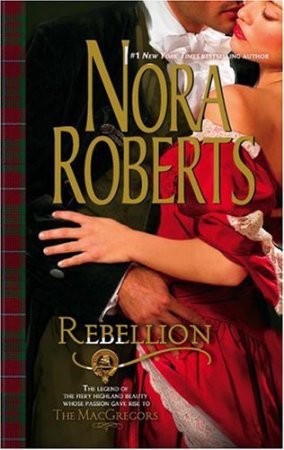 Rebellion
Rebellion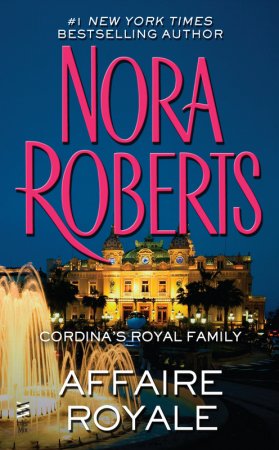 Affaire Royale
Affaire Royale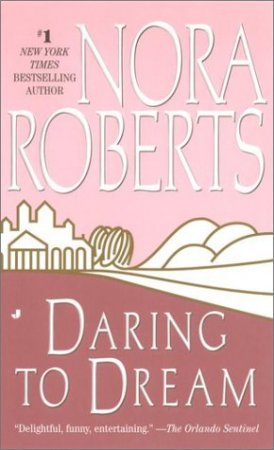 Daring to Dream
Daring to Dream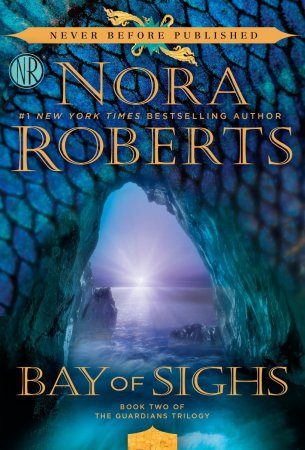 Bay of Sighs
Bay of Sighs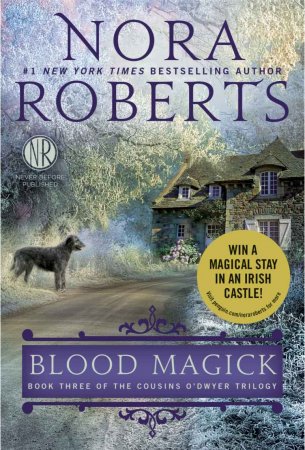 Blood Magick
Blood Magick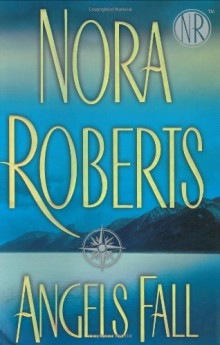 Angels Fall
Angels Fall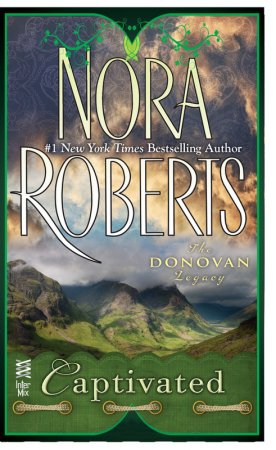 Captivated
Captivated The Last Boyfriend
The Last Boyfriend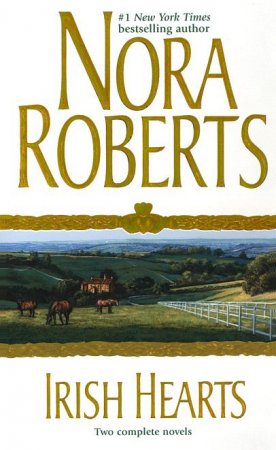 Irish Thoroughbred
Irish Thoroughbred Inner Harbor
Inner Harbor The Right Path
The Right Path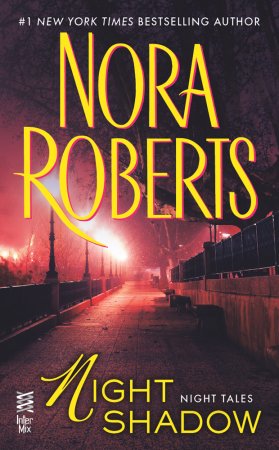 Night Shadow
Night Shadow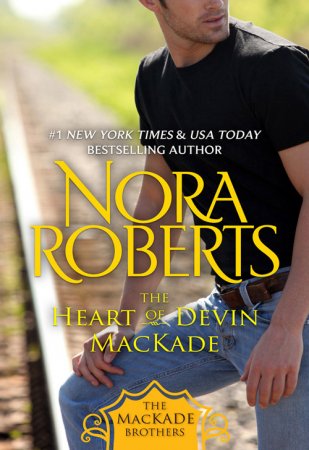 The Heart of Devin MacKade
The Heart of Devin MacKade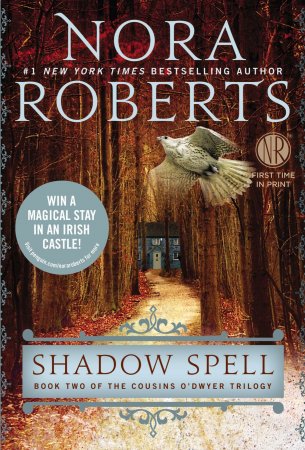 Shadow Spell
Shadow Spell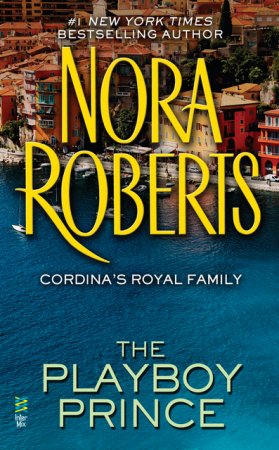 The Playboy Prince
The Playboy Prince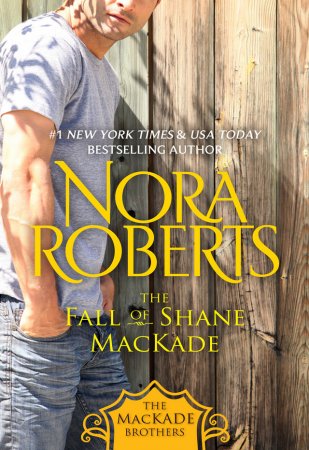 The Fall of Shane MacKade
The Fall of Shane MacKade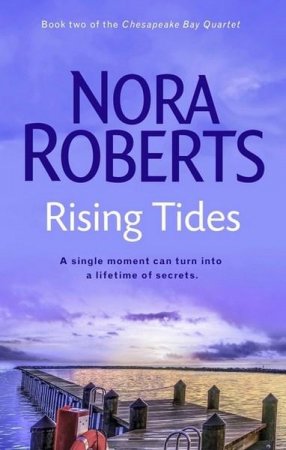 Rising Tides
Rising Tides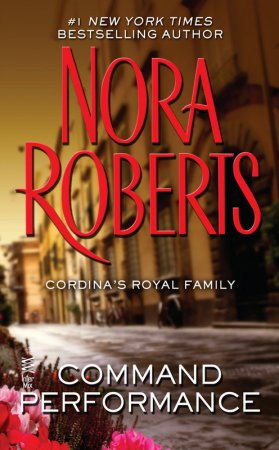 Command Performance
Command Performance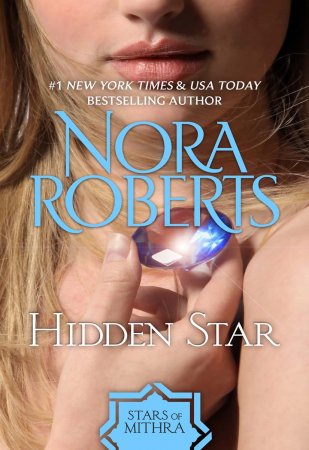 Hidden Star
Hidden Star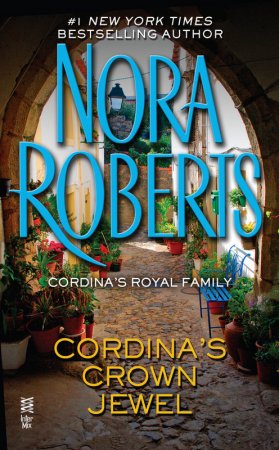 Cordina's Crown Jewel
Cordina's Crown Jewel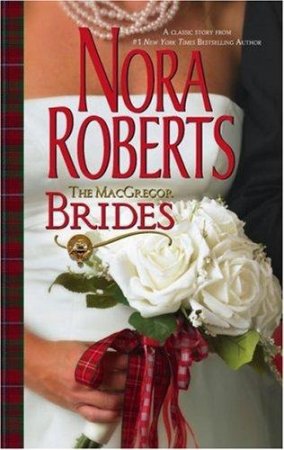 The MacGregor Brides
The MacGregor Brides The Pride of Jared MacKade
The Pride of Jared MacKade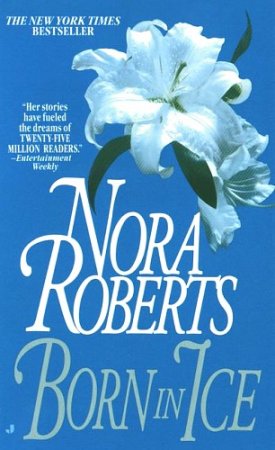 Born in Ice
Born in Ice Whiskey Beach
Whiskey Beach The Last Honest Woman
The Last Honest Woman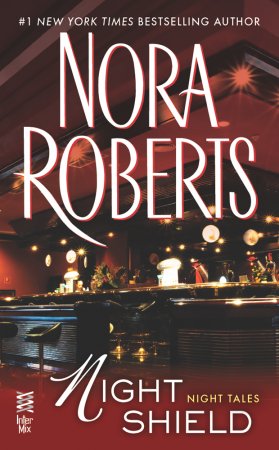 Night Shield
Night Shield Born in Shame
Born in Shame Secret Star
Secret Star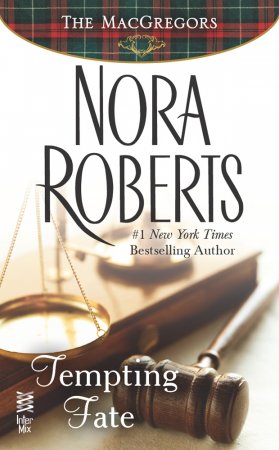 Tempting Fate
Tempting Fate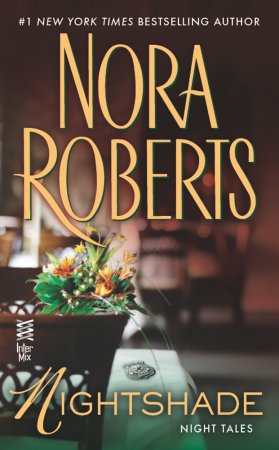 Nightshade
Nightshade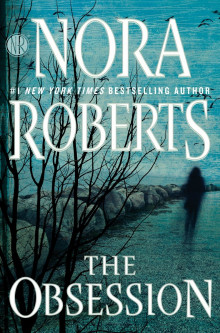 The Obsession
The Obsession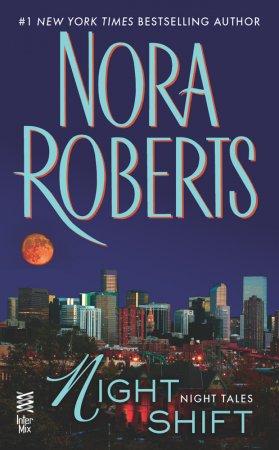 Night Shift
Night Shift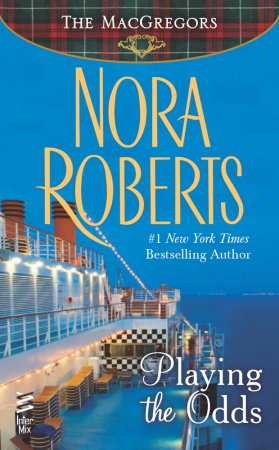 Playing The Odds
Playing The Odds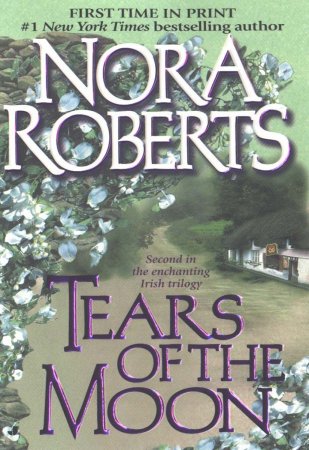 Tears of the Moon
Tears of the Moon One Man's Art
One Man's Art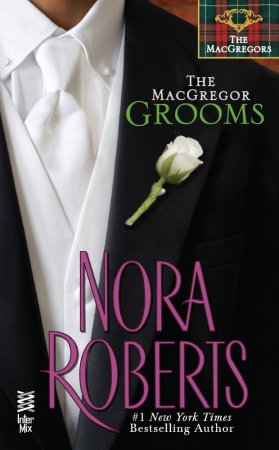 The MacGregor Groom
The MacGregor Groom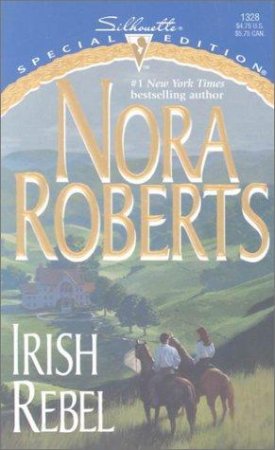 Irish Rebel
Irish Rebel Morrigan's Cross
Morrigan's Cross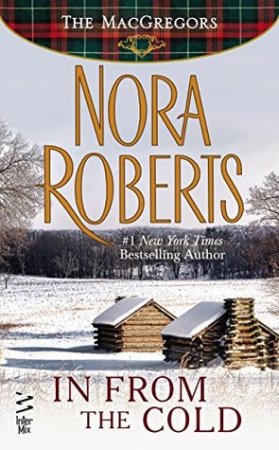 In From The Cold
In From The Cold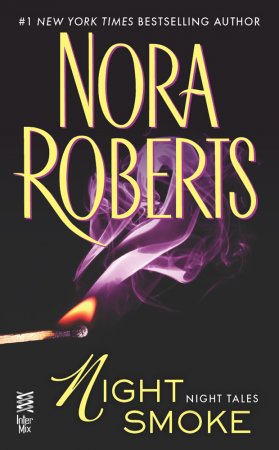 Night Smoke
Night Smoke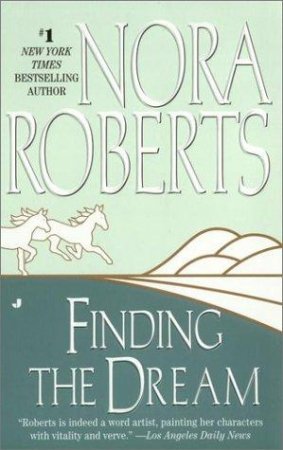 Finding the Dream
Finding the Dream Red Lily
Red Lily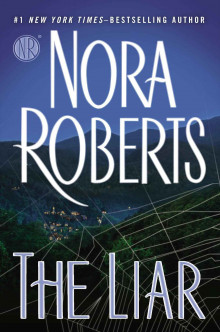 The Liar
The Liar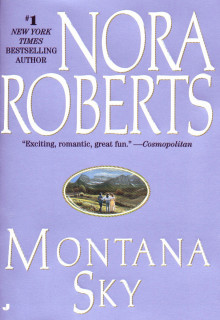 Montana Sky
Montana Sky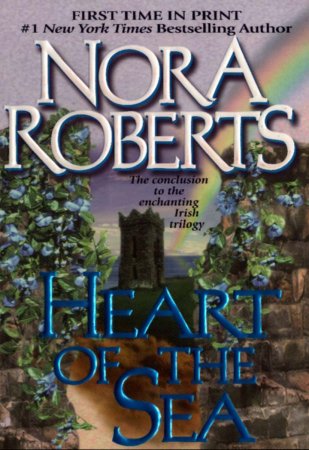 Heart of the Sea
Heart of the Sea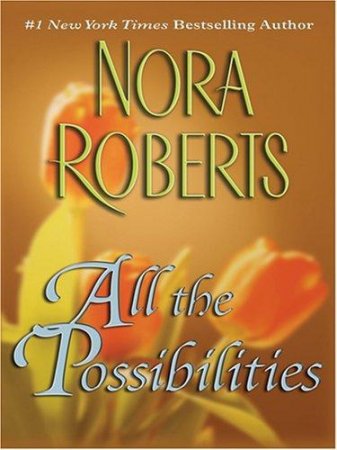 All The Possibilities
All The Possibilities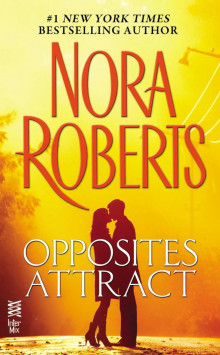 Opposites Attract
Opposites Attract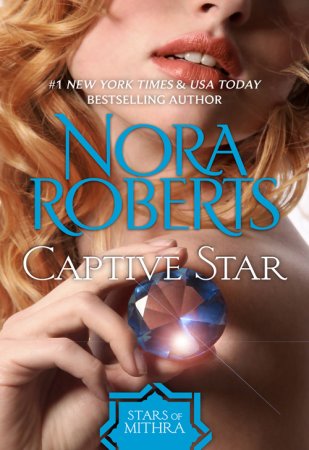 Captive Star
Captive Star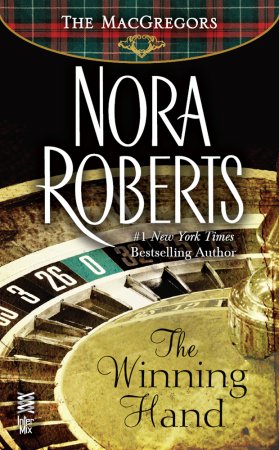 The Winning Hand
The Winning Hand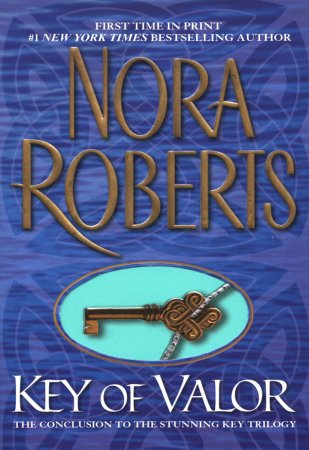 Key of Valor
Key of Valor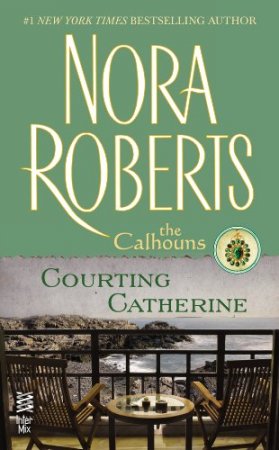 Courting Catherine
Courting Catherine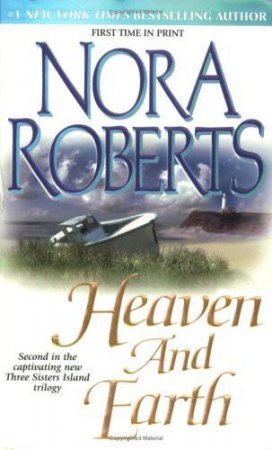 Heaven and Earth
Heaven and Earth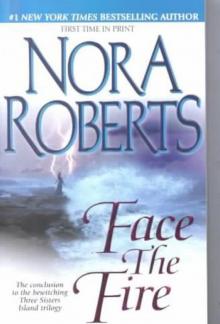 Face the Fire
Face the Fire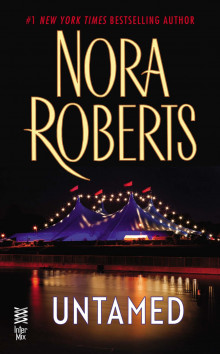 Untamed
Untamed Skin Deep
Skin Deep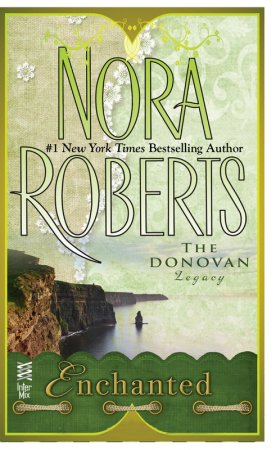 Enchanted
Enchanted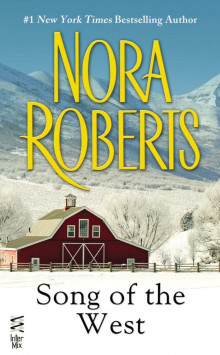 Song of the West
Song of the West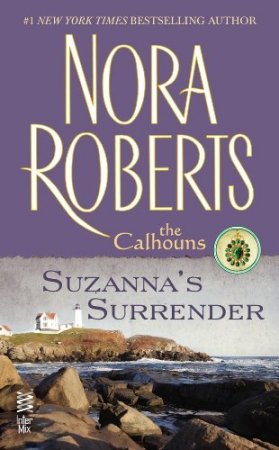 Suzanna's Surrender
Suzanna's Surrender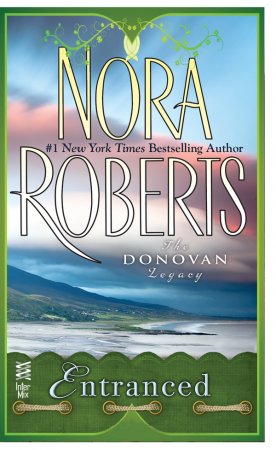 Entranced
Entranced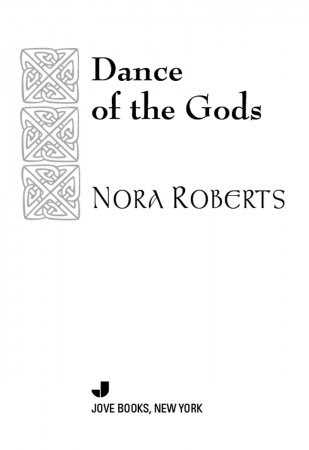 Dance of the Gods
Dance of the Gods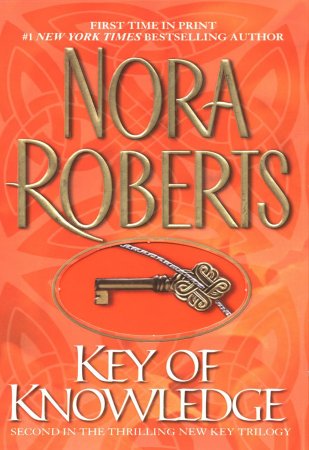 Key of Knowledge
Key of Knowledge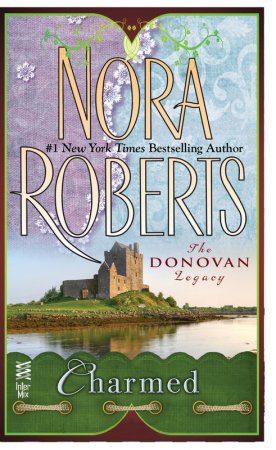 Charmed
Charmed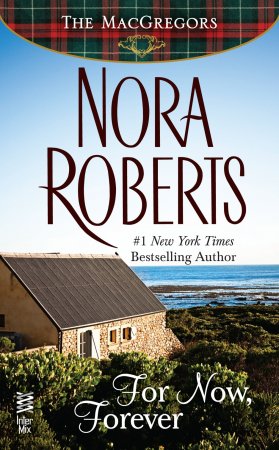 For Now, Forever
For Now, Forever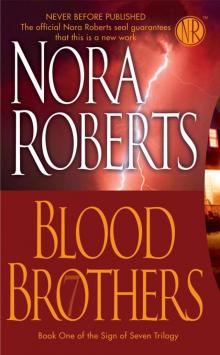 Blood Brothers
Blood Brothers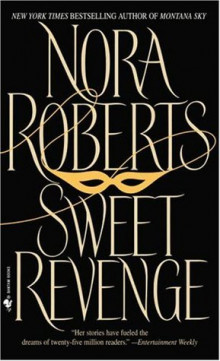 Sweet Revenge
Sweet Revenge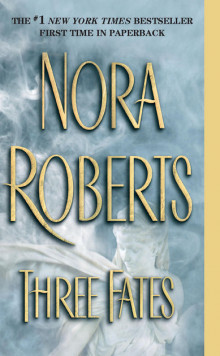 Three Fates
Three Fates Mind Over Matter
Mind Over Matter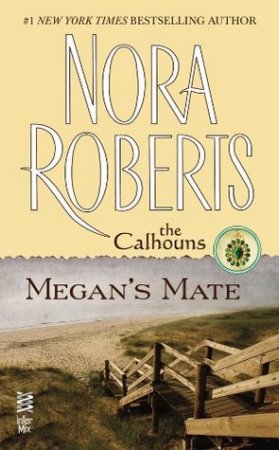 Megan's Mate
Megan's Mate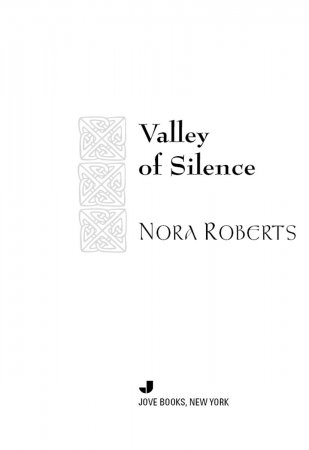 Valley of Silence
Valley of Silence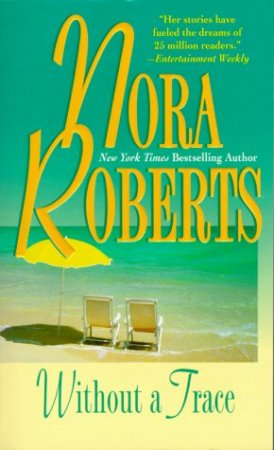 Without A Trace
Without A Trace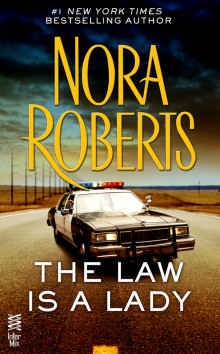 The Law is a Lady
The Law is a Lady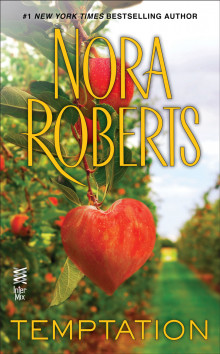 Temptation
Temptation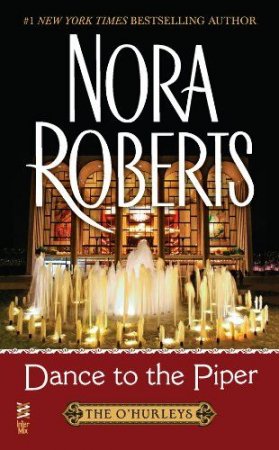 Dance to the Piper
Dance to the Piper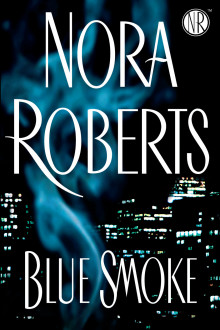 Blue Smoke
Blue Smoke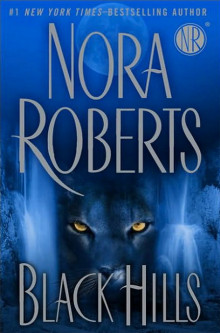 Black Hills
Black Hills The Heart's Victory
The Heart's Victory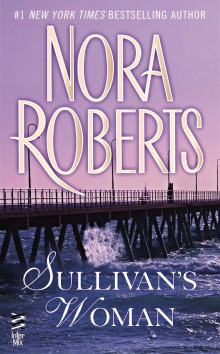 Sullivan's Woman
Sullivan's Woman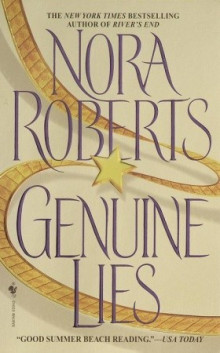 Genuine Lies
Genuine Lies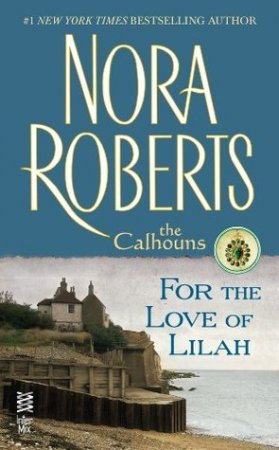 For the Love of Lilah
For the Love of Lilah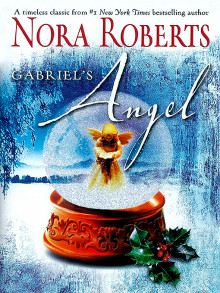 Gabriel's Angel
Gabriel's Angel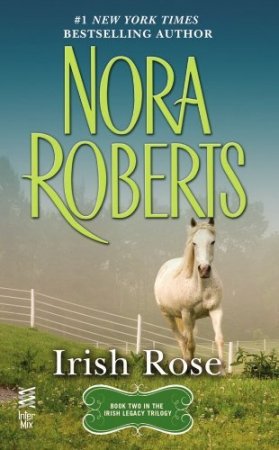 Irish Rose
Irish Rose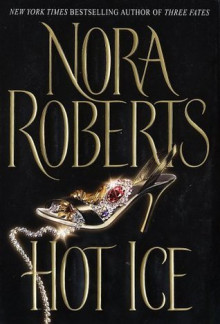 Hot Ice
Hot Ice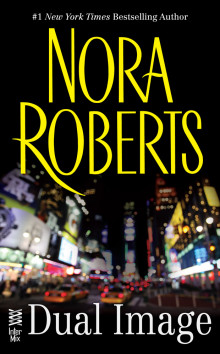 Dual Image
Dual Image Lawless
Lawless Catch My Heart
Catch My Heart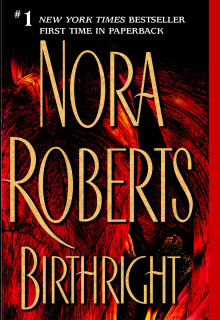 Birthright
Birthright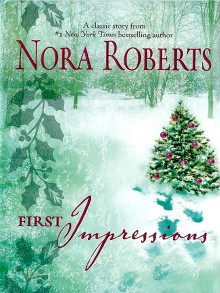 First Impressions
First Impressions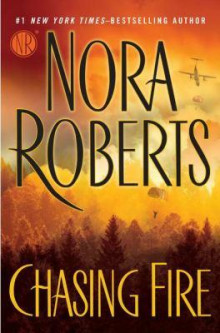 Chasing Fire
Chasing Fire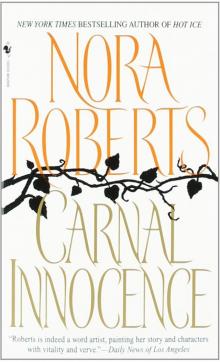 Carnal Innocence
Carnal Innocence Best Laid Plans
Best Laid Plans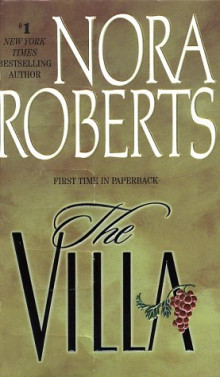 The Villa
The Villa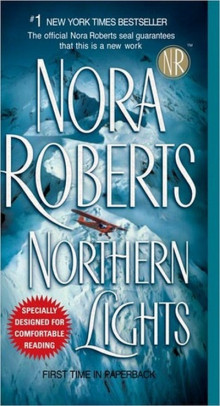 Northern Lights
Northern Lights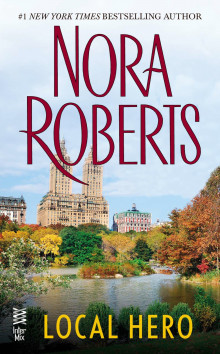 Local Hero
Local Hero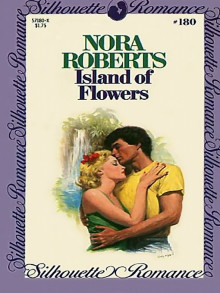 Island of Flowers
Island of Flowers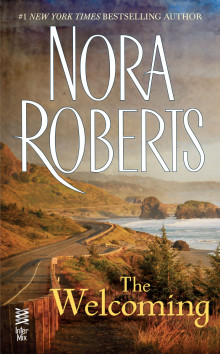 The Welcoming
The Welcoming All I Want for Christmas
All I Want for Christmas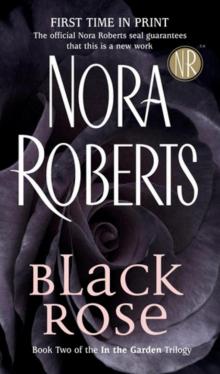 Black Rose
Black Rose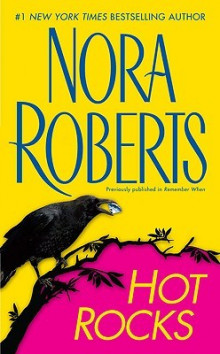 Hot Rocks
Hot Rocks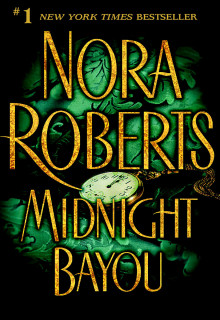 Midnight Bayou
Midnight Bayou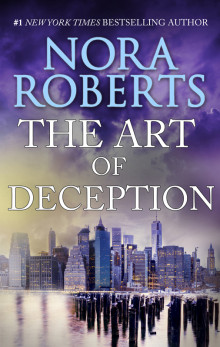 The Art of Deception
The Art of Deception From This Day
From This Day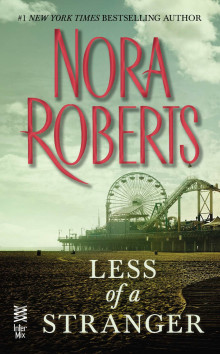 Less of a Stranger
Less of a Stranger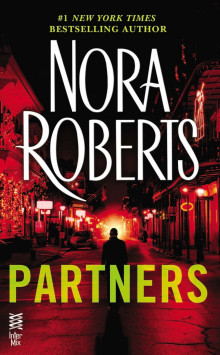 Partners
Partners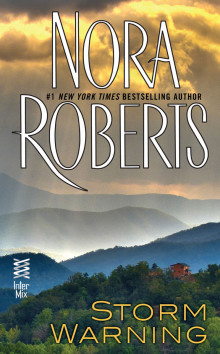 Storm Warning
Storm Warning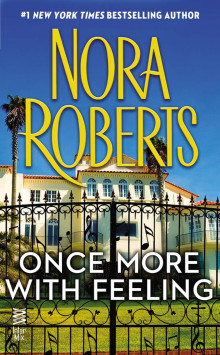 Once More With Feeling
Once More With Feeling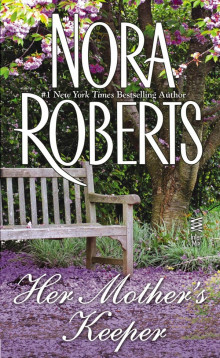 Her Mother's Keeper
Her Mother's Keeper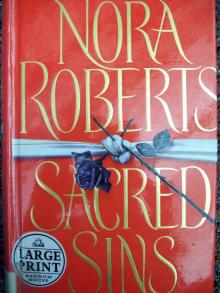 Sacred Sins
Sacred Sins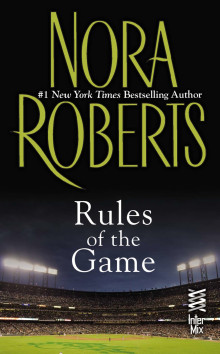 Rules of the Game
Rules of the Game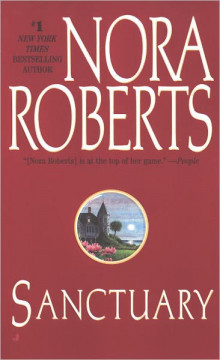 Sanctuary
Sanctuary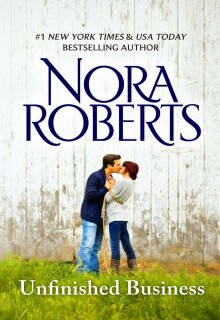 Unfinished Business
Unfinished Business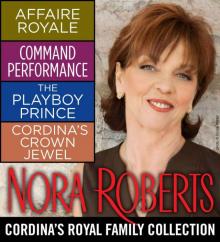 Cordina's Royal Family Collection
Cordina's Royal Family Collection Dangerous Embrace
Dangerous Embrace One Summer
One Summer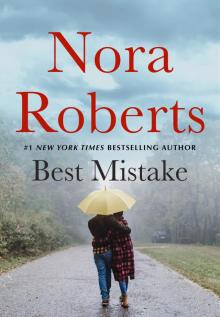 The Best Mistake
The Best Mistake Boundary Lines
Boundary Lines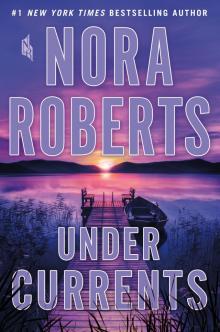 Under Currents
Under Currents The Stanislaski Series Collection, Volume 1
The Stanislaski Series Collection, Volume 1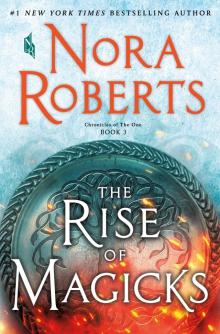 The Rise of Magicks
The Rise of Magicks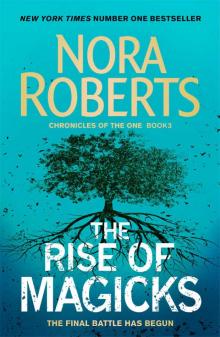 The Rise of Magicks (Chronicles of The One)
The Rise of Magicks (Chronicles of The One) The Awakening: The Dragon Heart Legacy Book 1
The Awakening: The Dragon Heart Legacy Book 1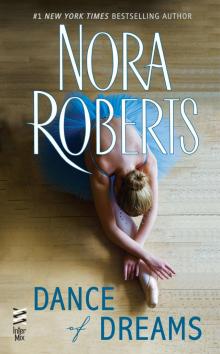 Dance of Dreams
Dance of Dreams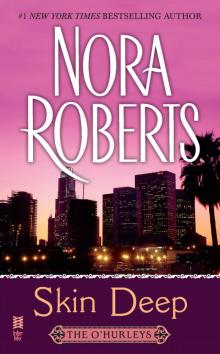 Skin Deep: The O'Hurleys
Skin Deep: The O'Hurleys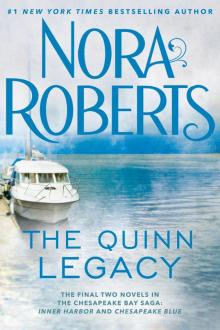 The Quinn Legacy: Inner Harbor ; Chesapeake Blue
The Quinn Legacy: Inner Harbor ; Chesapeake Blue![[Chronicles of the One 03.0] The Rise of Magicks Read online](http://i1.bookreadfree.com/11/chronicles_of_the_one_03_0_the_rise_of_magicks_preview.jpg) [Chronicles of the One 03.0] The Rise of Magicks
[Chronicles of the One 03.0] The Rise of Magicks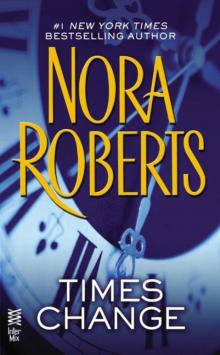 Times Change
Times Change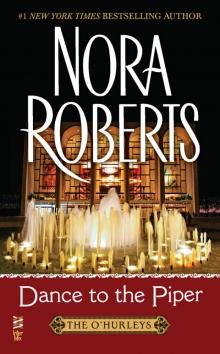 Dance to the Piper: The O'Hurleys
Dance to the Piper: The O'Hurleys Christmas In the Snow: Taming Natasha / Considering Kate
Christmas In the Snow: Taming Natasha / Considering Kate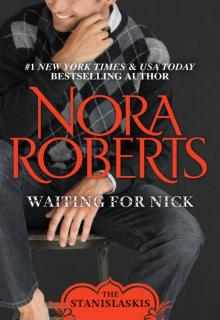 Waiting for Nick
Waiting for Nick Summer Desserts
Summer Desserts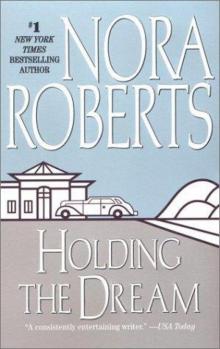 Dream 2 - Holding the Dream
Dream 2 - Holding the Dream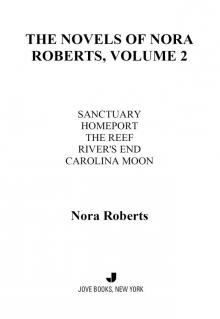 The Novels of Nora Roberts, Volume 2
The Novels of Nora Roberts, Volume 2 In the Garden Trilogy
In the Garden Trilogy Eight Classic Nora Roberts Romantic Suspense Novels
Eight Classic Nora Roberts Romantic Suspense Novels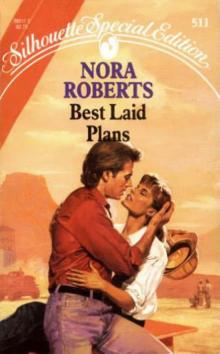 Best Laid Plans jh-2
Best Laid Plans jh-2 From the Heart
From the Heart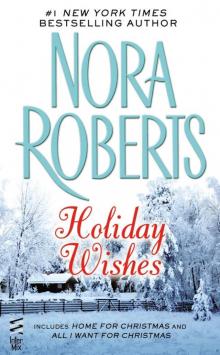 Holiday Wishes
Holiday Wishes Dream 1 - Daring to Dream
Dream 1 - Daring to Dream Second Nature
Second Nature Summer Pleasures
Summer Pleasures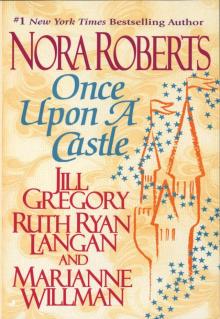 Once Upon a Castle
Once Upon a Castle Stars of Mithra Box Set: Captive StarHidden StarSecret Star
Stars of Mithra Box Set: Captive StarHidden StarSecret Star Impulse
Impulse The Irish Trilogy by Nora Roberts
The Irish Trilogy by Nora Roberts The Pride Of Jared Mackade tmb-2
The Pride Of Jared Mackade tmb-2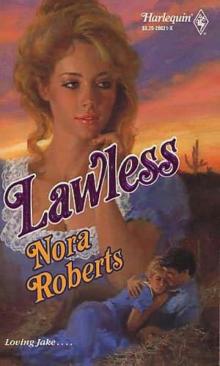 Lawless jh-3
Lawless jh-3 Taming Natasha
Taming Natasha Endless Summer
Endless Summer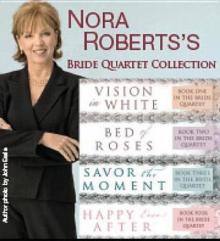 Bride Quartet Collection
Bride Quartet Collection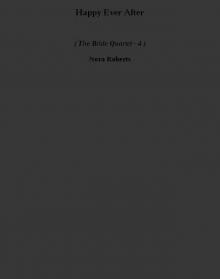 Happy Ever After tbq-4
Happy Ever After tbq-4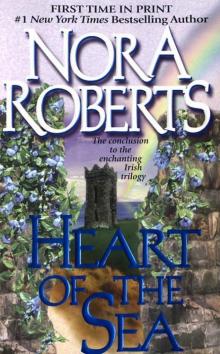 Heart Of The Sea goa-3
Heart Of The Sea goa-3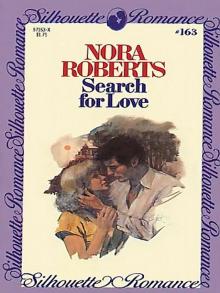 Search for Love
Search for Love Once upon a Dream
Once upon a Dream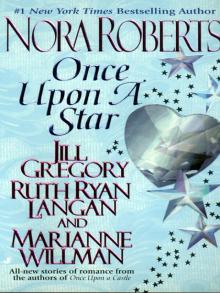 Once Upon a Star
Once Upon a Star Dream Trilogy
Dream Trilogy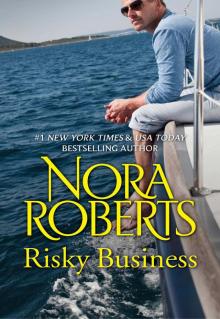 Risky Business
Risky Business The Novels of Nora Roberts, Volume 3
The Novels of Nora Roberts, Volume 3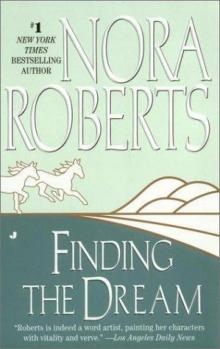 Dream 3 - Finding the Dream
Dream 3 - Finding the Dream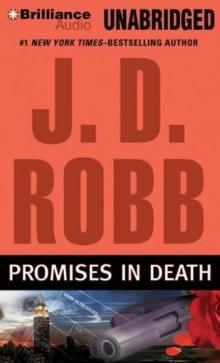 Promises in Death id-34
Promises in Death id-34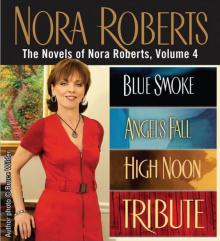 The Novels of Nora Roberts, Volume 4
The Novels of Nora Roberts, Volume 4 The Perfect Hope ib-3
The Perfect Hope ib-3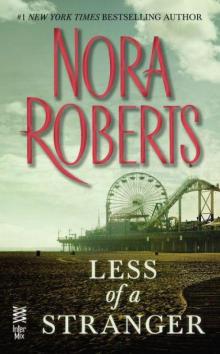 Less than a Stranger
Less than a Stranger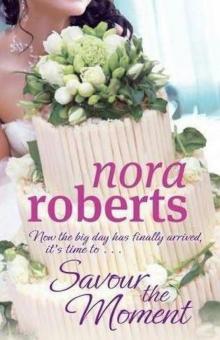 Savour the Moment: Now the Big Day Has Finally Arrived, It's Time To...
Savour the Moment: Now the Big Day Has Finally Arrived, It's Time To... Convincing Alex
Convincing Alex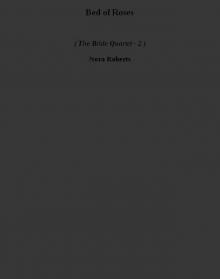 Bed of Roses tbq-2
Bed of Roses tbq-2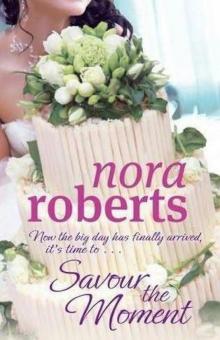 Savour the Moment tbq-3
Savour the Moment tbq-3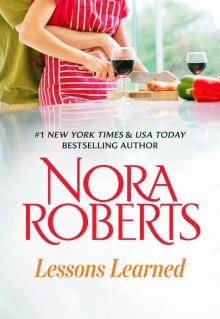 Lessons Learned
Lessons Learned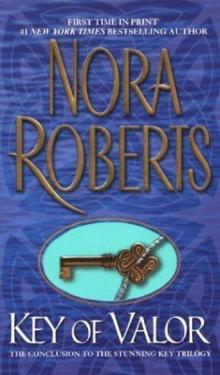 Key Of Valor k-3
Key Of Valor k-3 Red lily gt-3
Red lily gt-3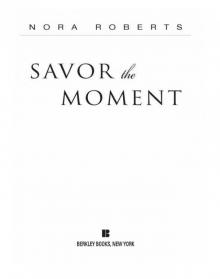 Savor the Moment
Savor the Moment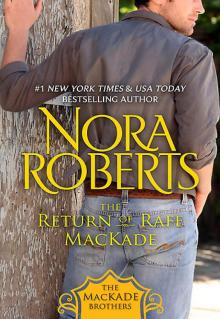 The Return Of Rafe Mackade tmb-1
The Return Of Rafe Mackade tmb-1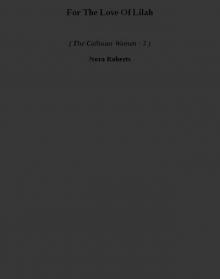 For The Love Of Lilah tcw-3
For The Love Of Lilah tcw-3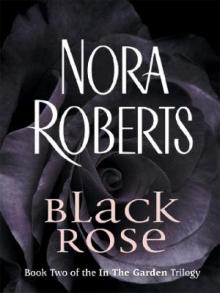 Black Rose gt-2
Black Rose gt-2 Novels: The Law is a Lady
Novels: The Law is a Lady Chesapeake Bay Saga 1-4
Chesapeake Bay Saga 1-4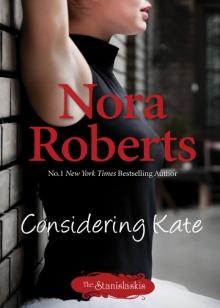 Considering Kate
Considering Kate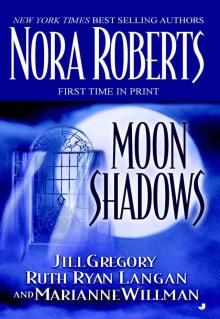 Moon Shadows
Moon Shadows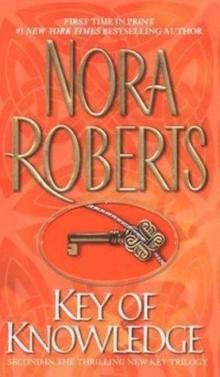 Key of Knowledge k-2
Key of Knowledge k-2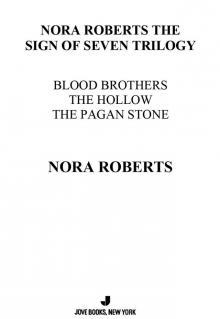 The Sign of Seven Trilogy
The Sign of Seven Trilogy Once Upon a Kiss
Once Upon a Kiss The Novels of Nora Roberts, Volume 5
The Novels of Nora Roberts, Volume 5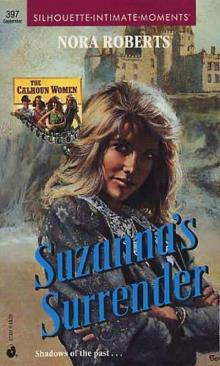 Suzanna's Surrender tcw-4
Suzanna's Surrender tcw-4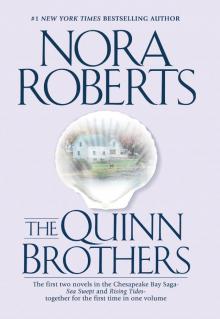 The Quinn Brothers
The Quinn Brothers Falling for Rachel
Falling for Rachel Brazen Virtue
Brazen Virtue Time Was
Time Was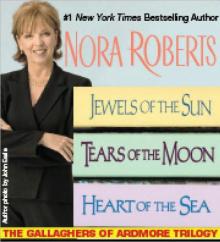 The Gallaghers of Ardmore Trilogy
The Gallaghers of Ardmore Trilogy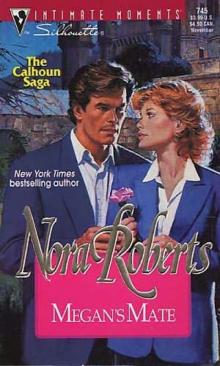 Megan's Mate tcw-5
Megan's Mate tcw-5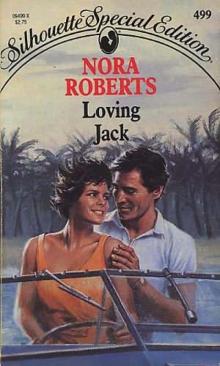 Loving Jack jh-1
Loving Jack jh-1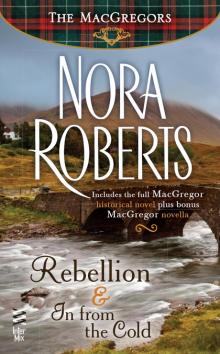 Rebellion & In From The Cold
Rebellion & In From The Cold Blue Dahlia gt-1
Blue Dahlia gt-1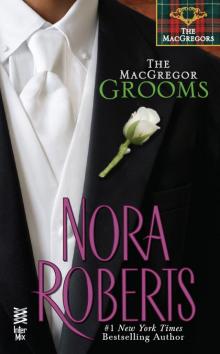 The MacGregor Grooms
The MacGregor Grooms The Next Always tibt-1
The Next Always tibt-1 The Heart Of Devin Mackade tmb-3
The Heart Of Devin Mackade tmb-3 The Novels of Nora Roberts Volume 1
The Novels of Nora Roberts Volume 1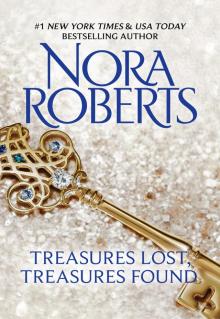 Treasures Lost, Treasures Found
Treasures Lost, Treasures Found Nora Roberts's Circle Trilogy
Nora Roberts's Circle Trilogy The Key Trilogy
The Key Trilogy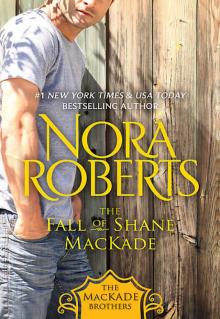 The Fall Of Shane Mackade tmb-4
The Fall Of Shane Mackade tmb-4 A Will And A Way
A Will And A Way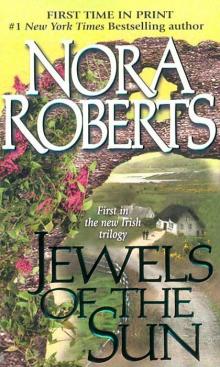 Jewels of the Sun goa-1
Jewels of the Sun goa-1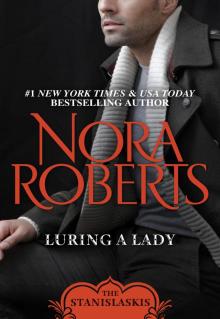 Luring a Lady
Luring a Lady